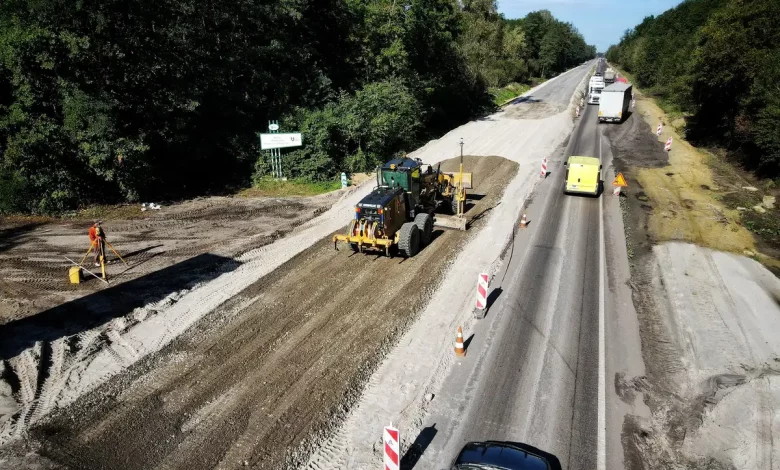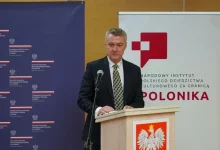
In the Lviv region, the major overhaul of the M-09 international highway connecting Lviv with the “Rava-Ruska – Hrebenne” border checkpoint is progressing at an accelerated pace. According to the press service of the company “Avtomagistral-Pivden”, construction is being carried out in two shifts, around the clock.
Key project details:
-
Length of the road section — 33.4 km (from Vola-Vysotska village to the border checkpoint).
-
Number of workers involved — 330 personnel.
-
Number of machines — 150 units of specialized construction equipment.
The scale of the operation is driven by the heavy load on this section of road, which forms part of the Trans-European Transport Network (TEN-T) and serves as a major logistics route between Kyiv and Warsaw. Due to the war, this road has become even more vital for delivering critical supplies and Ukrainian exports to Europe.
Project background:
Even before the full-scale war, in 2020, the EBRD conducted a safety audit, along with economic, environmental, and social assessments. That same year, a financing agreement was signed with Ukraine, covering several infrastructure projects, including this one.
Current work underway:
-
Road widening and construction of a third traffic lane.
-
Asphalt laying on completed base sections.
-
Ongoing works on 5 out of 6 bridges: installation of supports is finishing, while one bridge is being prepared for beam installation.
-
Installation of drainage pipes — a total of 19 are planned, with 10 already under construction.
Project plans include:
-
Expanding the road outside populated areas.
-
Adding acceleration and deceleration lanes near stops, intersections, and junctions.
-
Full replacement of the road base and laying three layers of asphalt concrete.
-
Dismantling and rebuilding six bridges, with four being replaced by concrete culverts.
-
Construction of a roundabout interchange.
-
Installation of a new rainwater drainage and purification system (currently absent).
-
Construction of sidewalks, bike lanes, and noise protection screens.
Despite the scale of the works, traffic in both directions remains open. A reversible traffic system was introduced to prevent long detours, allowing freight, passenger, and private vehicles to continue using the route efficiently.



